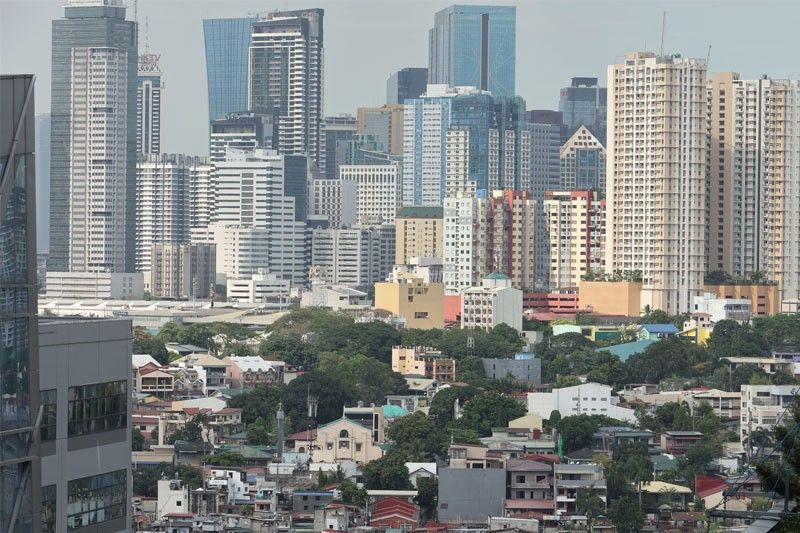R&I upgrades Philippines credit rating

Tokyo-based Rating and Investment Information Inc. (R&I) has upgraded its credit rating outlook for the Philippines to positive from stable, increasing the possibility of an upgrade in the next 12 to 18 months.
A positive outlook indicates the possibility of a rating upgrade once performance indicators, such as the economic growth sought under the Philippine Development Plan 2023-2028, stable macroeconomic conditions and improving trend of fiscal position have been confirmed.
In a statement, R&I said it has affirmed the Philippines’ BBB+ credit rating, two notches above minimum investment grade, as the country’s economy continues to perform well despite uncertainty surrounding the global economy.
According to Finance Secretary Benjamin Diokno, “R&I’s improved outlook on the Philippines brings us closer to our goal of an A rating” within the term of President Marcos.
“We are firmly on track to our road to A and remain committed to further improving the country’s investment climate through structural reforms to enhance the quality and pace of infrastructure development,” Diokno said in a separate statement.
Countries with investment-grade ratings can access funding from development partners as well as international debt capital markets at lower costs due to their lower credit risk factor.
The Philippines booked a gross domestic product (GDP) growth of 7.6 percent in 2022, slightly surpassing the 6.5 to 7.5 percent target range set by economic managers.
The expansion eased to 6.4 percent in the first quarter from 7.1 percent in the fourth quarter, and eight percent in the first quarter of last year.
“The strong performance has continued through to 2023. Inflation, which had accelerated due to rising energy and food prices, is decelerating after reaching its peak in early 2023,” R&I said.
Inflation averaged 6.8 percent in the first seven months, still above the two to four percent target set by the Bangko Sentral ng Pilipinas (BSP), after easing to 4.7 percent in July from 5.4 percent in June, and hitting the peak of 8.7 percent in January.
The debt watcher believes that private consumption, a major driver of the economy, will likely remain strong despite strong expectations of slower exports due to weakening global demand.
Also, it added that investment has been performing well, supported by the infrastructure development projects that the Marcos administration is pushing ahead with.
Furthermore, R&I noted that the government’s fiscal deficit is improving, albeit at a moderate pace.
Likewise, it said the government debt ratio is expected to start declining from this year.
On the other hand, R&I said the current account deficit, which had widened due to import surge and higher crude oil prices, is expected to shrink and the external debt remains under control.
R&I sees the Philippines’ current account shortfall decreasing to around three percent of GDP, as surpluses in remittances from overseas Filipino workers (OFWs) and other accounts have held steady.
On the financing side, foreign direct investment (FDI) inflows remain strong.
“R&I will not take a negative view of the current account deficit, given that increased imports stemming from infrastructure investment will lead to economic growth in the future. Foreign reserves stand at a sufficient level to cover imports. In terms of international investment position, the country’s external liabilities slightly exceed its external assets,” it said.
The credit rating agency cited the efforts of the Philippines to trim the deficit-to-GDP ratio to 6.1 percent this year from 8.6 percent in 2021 due to measures implemented in response to the COVID-19 pandemic and the policy actions to support the ailing economy.
R&I said the government has allocated budgets in favor of infrastructure-related programs, reflecting the direction of policies it took over from the previous administration.
“R&I believes that the fiscal deficit will likely improve to a level in line with government target, due partly to the solid trend of tax revenue. The outstanding debt of the central government registered 60.9 percent of GDP in 2022, but will likely fall in 2023,” it added.
According to R&I, the high approval rating of President Marcos contributes to maintaining a stable political environment. In terms of economic policies, the Marcos administration has continued the previous administration’s policies to address key infrastructure development and structural reforms, leading to better prospects that the country will make progress in raising income levels, which has been a key challenge.
- Latest
- Trending




























